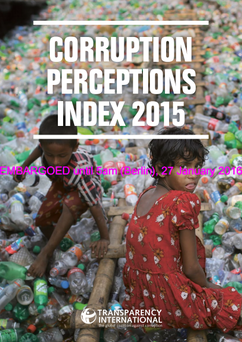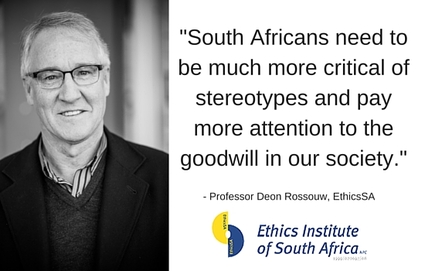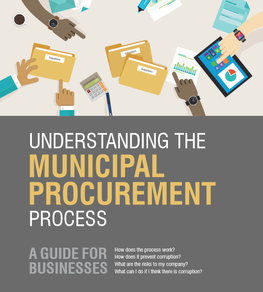 The Transparency International Corruption Perception Index (CPI) was first released in 1995 and has played an important part in focusing global attention on corruption issues. The CPI gives an annual indication of perceptions of public sector corruption in a list of countries which numbered 168 in the latest survey which was released on 27 January 2016. Here are some quick facts about the CPI to place South Africa’s performance in context: • The CPI scores countries based on perceived levels of corruption, with 0 being negative (very corrupt) and 100 being positive (no corruption). • South Africa’s CPI score has remained the same as last year at 44. • Our relative ranking has however improved from 67 to 61 (out of 168 countries) indicating that some countries have deteriorated relative to SA. • South Africa is ranked number 10 out of the 52 African countries that were included in the 2015 study. Countries that were ranked better than SA include our neighbours Botswana, Namibia and Lesotho, as well as Rwanda, Ghana and Senegal. • South Africa (with a score of 44) is the best performing BRICS country, followed by Brazil and India (38), China (37) and Russia (29). • Looking at the data over a ten year period from 2005 to 2015, South Africa’s CPI has declined only one percentage point from 45 in 2005 to 44 in 2015. • Our relative position has however declined more dramatically. In 2005 we were in the top 29% of countries, and in 2015 we are in the top 36%. • This shows that other countries are improving at a higher rate than we are. Analysing the CPI data from 2005 to 2015 we found that 98 countries have improved over this period, 8 have stayed the same and 49 have declined. • Significant improvement on the index is possible as is shown by the three biggest improvers from 2005 to 2015. Georgia improved by 29 per cent, Poland by 28 per cent, and Rwanda by 23 per cent. ENDS MEDIA CONTACT: Cathlen Fourie, 082 222 9198, [email protected], www.atthatpoint.co.za For more information on EthicsSA please visit: Website: www.ethicssa.org LinkedIn: Ethics Institute of South Africa Facebook: Ethics Institute of South Africa
0 Comments
 The current social media storm on racism demonstrates yet again how dangerous stereotypes are, and how easily they can become self-fulfilling prophecies. To prevent these inaccurate but powerful stories from setting the national agenda, South Africans must consciously tell a different story - backed up by the facts. “The reaction to recent racist tweets has shown the power of stereotypes to influence the way a whole nation sees itself, spreading negativity that affects not only individuals but the national mood itself. These tweets seem to confirm stereotypes so they spread easily, but they are simply not borne out by the facts,” says Professor Deon Rossouw, CEO of the Ethics Institute of South Africa (EthicsSA). “We need to be much more critical of these stereotypes and pay more attention to the goodwill in our society.” As an example of a stereotype related to corruption in South Africa, Professor Rossouw cites the findings in the recent survey into bribery conducted by EthicsSA and sponsored by Massmart. The survey found that while 78 percent of South Africans believe that bribery is necessary to get through everyday life, only 20 percent know somebody who has actually paid a bribe. In other words, even though the “received wisdom” is that bribery is both common and necessary, the vast majority of South Africans act differently. “Despite that finding, it was interesting that most of the headlines reporting on the survey incorrectly focused on the stereotype—‘Most South Africans pay bribes’—while the reality is that most do not,” says Professor Rossouw. “We need to discard inaccurate stereotypes consciously, or we risk feeding them and letting them become true.” Another example of how stereotyping masks, and can overpower, reality is evident in the racism debate currently underway, he continues. The spate of racist tweets and reactions to them can seem to confirm stereotypes that everybody is racist, thus creating the impression that reconciliation and nation-building have failed and are no longer worth pursuing. In fact, the opposite is true as the SA Reconciliation Barometer 2015 shows. Published late last year by The Institute for Justice and Reconciliation, the survey provides factual evidence that the vast majority of South Africans are committed to reconciliation and nation-building: 75.5 percent favour an inclusive South African identity, and 71 percent believe it is important to have a united South African nation. “This is astonishing given the fact that a majority (61.4 percent) also believe that race relations have stayed the same or worsened since democracy. So yes, the challenges remain daunting and not enough progress is being made, but the reality is that most of us want the South African project to succeed. You would never guess that from the dominant narrative in social (and other) media, though it’s apparent in work places and other places where people mingle,” Professor Rossouw argues. “We must tap into this reality, and use them to create a positive frame for the important national conversations that must take place. If we do not, we risk letting the stereotypes—the dangerous and inaccurate myths—dominate our reality. We must not let that happen.” ENDS MEDIA CONTACT: Cathlen Fourie, 082 222 9198, [email protected], www.atthatpoint.co.za For more information on EthicsSA please visit: Website: www.ethicssa.org LinkedIn: Ethics Institute of South Africa Facebook: Ethics Institute of South Africa  The Ethics Institute of South Africa (EthicsSA) has released a booklet designed to help businesses understand the municipal procurement process, and what their rights are if they suspect irregularities. Kris Dobie, Manager: Organisational Ethics Development at EthicsSA, who co-authored ‘Understanding the municipal procurement process: A guide for businesses’ with Namhla Xinwa, says the booklet aims to simplify the procurement procedures and to make businesses aware of the regulations that are intended to foster transparency and accountability in the process. “If businesses know their rights they can hold municipalities accountable to follow the procedures correctly.” Municipalities spend billions of rands every year in procuring products and services from companies both large and small. Many companies find themselves at a disadvantage because they do not fully understand the often-complex tender processes, or how to question what they see as irregularities in the awarding of tenders. Dobie points out that there is strong evidence of irregularities in the municipal procurement process, as shown by the persistently high number of qualified audit reports for municipalities issued by the Auditor General. As a result, government has introduced numerous checks and balances to help prevent corruption, but these also introduce complexity into the tender process. The EthicsSA booklet provides a clear guide to each step in the process, and how to raise questions. One practical example of how a business can keep track of the process is to be present when the tender box is opened. That way, it will have first-hand knowledge of submitted bids and what their value was. Armed with this knowledge, it is then easy to check that the eventual award of the tender dovetails with the original bids. It’s also very important to recognise that many companies are unaware of their obligations in terms of keeping the tender process fair and above board, and the booklet also spells out businesses’ responsibilities. These include avoiding anti-competitive business practices, BEE fronting and conflicts of interest. It also deals with the ever-present topic of gifts and entertainment. Dobie warns that even relatively low-cost gifts or entertainment could be construed as bribes. “We would like to see the booklet become a reference document for all businesses doing work with municipalities and have made it available for free download on our website. We encourage business chambers and other business bodies to distribute the booklet to their members.” “Creating an ethical tender system that is fair to all depends on strong mutual accountability, something this booklet will advance if used correctly,” Dobie ends. “We aim to empower business by making it aware not only of how the process should work and what to do if it suspects irregularities, but also by pinpointing its own responsibilities.” To download the booklet, click here. ENDS MEDIA CONTACT: Cathlen Fourie, 082 222 9198, [email protected], www.atthatpoint.co.za For more information on EthicsSA please visit: Website: www.ethicssa.org LinkedIn: Ethics Institute of South Africa Facebook: Ethics Institute of South Africa |
Welcome to the newsroom of The Ethics Institute. For media releases prior to August 2014 please click here.
Archives
August 2017
Categories
All
|

 RSS Feed
RSS Feed